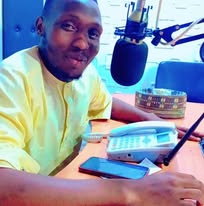Bridging Digital Divides: Empowering People with Special Needs and Uniting Communities Through Technology
By Abdullahi Abdulhafiz Aliyu
In today’s fast-changing digital landscape, access to technology is no longer a luxury—it is a necessity. Yet, for millions of Nigerians, especially people with special needs, the digital world remains out of reach due to systemic barriers and a lack of inclusive learning opportunities. My work as a journalist and digital advocate has focused on breaking these barriers, ensuring that technology serves as a tool for empowerment rather than exclusion.
Through my engagement with individuals with disabilities and as the host of Duniyar Fasaha (Fasaha World) on Unity FM, I have worked to bridge the digital divide by providing foundational digital education to marginalized groups. By introducing people with special needs to basic computer skills such as Microsoft Word, Excel, PowerPoint, and internet navigation, I have witnessed firsthand how technology can unlock new opportunities and transform lives.
Digital Skills for Special Needs: A Path to Inclusion
 |
| Inclusive Digital Learning |
One of the most rewarding aspects of my journey has been teaching digital literacy to individuals with disabilities. Many of them, despite their enthusiasm to learn, have been sidelined due to a lack of accessible training programs. Recognizing this gap, I designed a curriculum tailored to their needs, ensuring that they gain foundational knowledge in essential digital tools.
 |
| A session in progress with a sign language interpreter assisting hearing-impaired participants as they learn digital skills |
For instance, I have trained visually impaired individuals to use screen readers to navigate Microsoft Word and browse the internet, enabling them to write documents and conduct research independently. For those with hearing impairments, I worked alongside interpreters to teach them how to create spreadsheets in Excel, design presentations in PowerPoint, and effectively use the internet for learning and business.
A key success story is Aisha, a young woman with a physical disability who had never used a computer before attending my training sessions. Within weeks, she mastered MS Word and Excel, and today, she assists her family in managing their small business records digitally. Her confidence and productivity have soared, proving that the right tools and support can change lives.
 |
| A New Chapter Begins |
 |
| From Learners to Leaders |
Despite these achievements, challenges persist. The cost of assistive technologies remains high, and there is limited awareness about digital accessibility. More support is needed from government agencies, NGOs, and tech companies to scale these initiatives and make digital education a reality for all.
Duniyar Fasaha on Unity FM: Using Media to Promote Digital Literacy
Beyond physical training sessions, my role as a journalist and presenter on Duniyar Fasaha (Fasaha World) has been instrumental in raising awareness about the importance of technology. Initially a 30-minute program, it was extended to a full hour due to the overwhelming interest from listeners.
Through the program, I break down complex technological concepts into simple, practical discussions. I focus on topics such as online safety, digital skills for employment, cybersecurity, and how technology can improve education, healthcare, and entrepreneurship. What makes Duniyar Fasaha unique is its bilingual approach—I present in both Hausa and English, ensuring that language is not a barrier to learning.
 |
| Your Questions, Our Answers |
The impact of this program has been profound. Listeners frequently call in to share how they have applied the knowledge gained from the show. One inspiring case was a parent who, after listening to an episode on digital literacy, enrolled his son with a disability in an ICT training program, believing that technology could offer him a brighter future. You can listen to some of the previous episodes of Duniyar Fasaha here https://surl.li/skzxew
Building a More Inclusive Digital Future
The digital divide in Nigeria is not just about internet access—it is about who gets the chance to participate in the future. For people with special needs, digital literacy can be a life-changing tool, offering access to remote work, education, and economic opportunities. However, the reality remains that most training centers, schools, and even public policies do not prioritize digital accessibility.
We must change this narrative. Inclusion should not be an afterthought but a core principle of our technological advancement. Government agencies, media houses, tech companies, and civil society organizations all have roles to play in ensuring that no one is left behind. This includes investing in assistive technologies, incorporating inclusive design into digital products, and creating more accessible training programs across Nigeria.
For me, this mission is personal. Whether it is through hands-on training with marginalized groups or using the airwaves to educate the masses, my goal is clear: to ensure that technology serves as a bridge, not a barrier. Nigeria’s future is digital, but that future must be one where everyone—regardless of ability, background, or economic status—has a seat at the table.
As we navigate the digital age, we must ask ourselves: What kind of society do we want to build? One where technology is an exclusive club for the privileged few? Or one where it empowers the many, especially those who have been ignored for too long? The answer should be obvious. The time to act is now.
Abdullahi Abdulhafiz Aliyu is a journalist, program manager, and digital inclusion advocate. He is dedicated to using technology and media to drive social change, empower communities, and foster digital literacy across Nigeria.

This comment has been removed by a blog administrator.
ReplyDelete